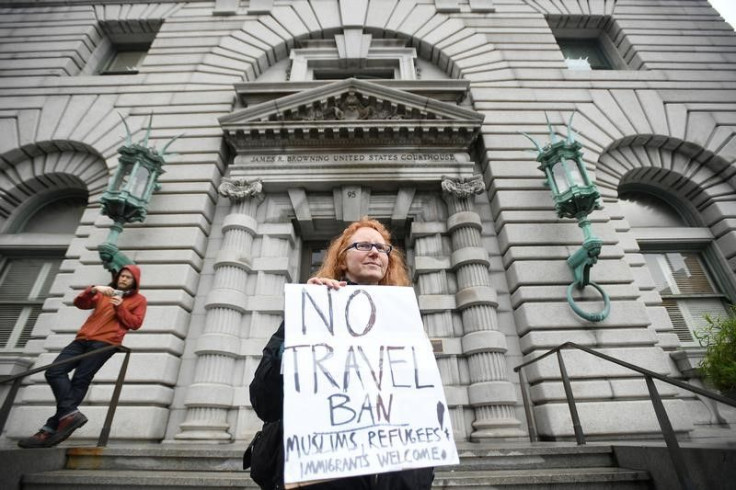Trump Travel Ban Update: Seattle Judge Refuses To Slow Case Against President's Executive Order

A federal judge in Seattle Monday refused a Justice Department request to delay the case against President Donald Trump’s executive order banning travelers from seven Muslim-majority countries, saying he was surprised given Trump’s response to last week’s appellate decision.
U.S. District Judge James Robart issued a temporary restraining order against the travel ban and a three-judge panel of the 9th U.S. Circuit Court of Appeals upheld the order last week. The Justice Department had sought to put the case on hold while the 9th Circuit decides if an 11-judge panel should review the case.
The appellate decision rejected the federal government’s position that the president had exclusive authority in the matter.
Robart directed both sides to prepare to argue the case, which was filed by the attorneys general of Washington state and Minnesota.
"Given the gravity of the states' constitutional allegations, defendants' stated national security concerns and the public interests at stake, the states respectfully submit that discovery should proceed without delay," the state lawyers said in a legal brief.
Justice Department lawyer Michelle Bennett told Robart there’s no reason to speed up the process, saying the states are protected from harm with the temporary restraining order in place. Bennett said the court should stick to its original schedule, which would have given the government until April 3 to file a response to the states’ complaint.
Robart said he was surprised by the request given Trump’s all-caps response to the 9th Circuit decision, saying, “See you in court.”
Robart added the issue was time sensitive, and he wasn’t prepared to slow the case.
"I'm not prepared to slow this down," Robart said, adding, "I'm not persuaded that call for en banc review by one judge ... ought to interfere with moving this case forward."
Trump issued an executive order last month banning travelers from Syria indefinitely, and for at least 90 days, travelers from Iran, Iraq, Libya, Somalia, Sudan and Yemen, ostensibly to protect the United States from infiltration by terrorists. The U.S. refugee program also was suspended for at least 120 days to give the government time to develop “extreme vetting” protocols.
The ban touched off demonstrations at airports across the country. Opponents said the ban was a thinly veiled attempt to block Muslim immigration as Trump promised during his campaign for president.
Trump said Friday he is reviewing his options, including possibly issuing a new executive order.
© Copyright IBTimes 2025. All rights reserved.






















